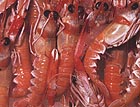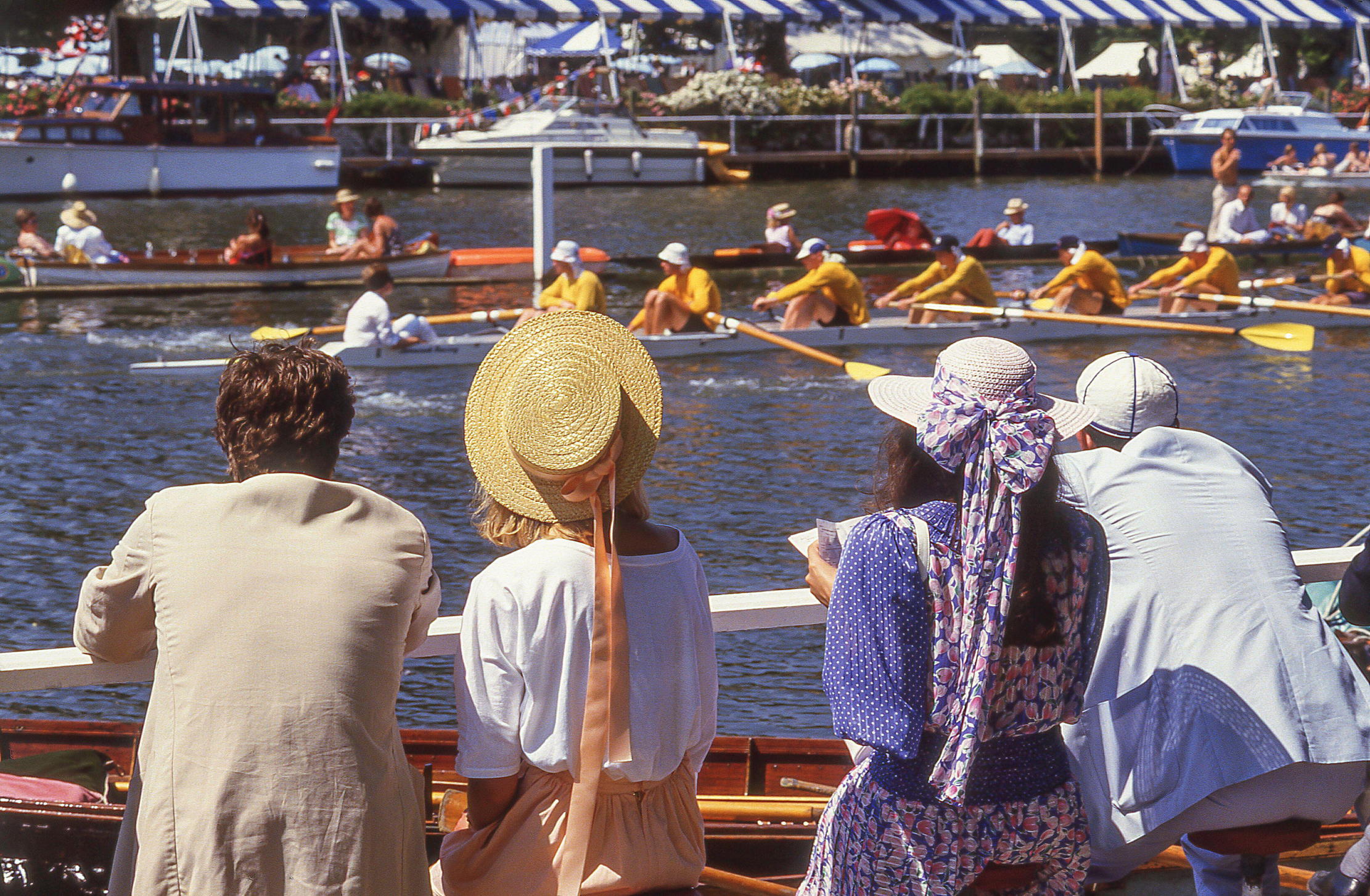A Fine Kettle of Fish
Madrid has been called Europe's largest port - which is strange, since it is far from the sea. But the Spanish appetite for fish and seafood is prodigious.


It is six o'clock in the morning at theMercamadrid,the anonymous-looking modern fish market outside Madrid. In the darkness, the crowd of fishmongers, restaurateurs and hotel buyers stirs in anticipation. The doors open and the effectis like a pitch invasion oat the end of a soccer match, or the first day of Harrods' sale. They surge down the aisles of the enormous hall, bent on being the fist to find the best fish, at the right price. The lighting is harsh, the names of the 150 traders blare out in neon signs and most of the fish is displayed in white plastic crates. No matter. The profusion recalls the cornucopian plenty of a 17th-century still-life.This ugly shed is a majestic temple to food fromthe sea. Spaniards like to call Madrid Europe's largest port. It is strange: Neptune must be gnashing his teeth. Because one does not have to have a profound grasp of geography to realise that the Spanish capital is in the centre of a landmass,250 miles from the nearest coast. Further, it is notoriously hot in summer. Yet stand still and take a look at the Mercamadrid .or rather, don't risk it - the trolleys, piled with bags of mussels, sections of swordfish and trays of squid, make standing still a perilous activity. So walk down the aisles and observe the stalls. Here are boxes of razor shells, the contents as neatly packed as cigars; handsome tuna, each one skilfully decapitated with three or four strokes from a broad, rounded blade; ugly conger eels flopping over the sides of their crates; salted cod, as dusty and leathery as a cowboy's chaps. There are silver fishes, with their noses just poking out of the ice; red fishes lines up like soldiers; a whole rugby union of prawns in striped jerseys.Mariscos, or shellfish, come in every variety known on earth: some - for example,percebes, shaped like miniature elephants' feet - with not English name (restaurants mistranslatepercebesas barnacles);some that one would hardly have thought it possible to eat; some with legs that move. With the voice of a foghorn, a trader cries 'venga, venga', as he arranges some monstrous centollo crabs. By thetime dawn comes, most of the bargaining has been done, some of the ice in the boxes has melted and the floor is covered ina pungent slime whose aroma penetrates every fold of every garment you wear. Now it will not surprise you to learn that Mercamadrid is the second-largest fish market in the world, second only to Tokyo. For white fish, it is the largest. It is not absolutely necessary to get up before dawn to appreciate that theMadrile¤os- the inhabitantsof Madrid -love fish. You see it in the care, set off with the occasional exuberant flourish, with which the fishmongers display their wares on the city's streets and in markets. Naturally, it is obvious enough in restaurants. But be warned; the best fish is often served in unadorned surroundings. La Trainera, for example, has plain wooden tables and uncomfortable chairs - because the Madrilenos want fish and nothing but fish: no frills, not so much as a salad. Equally, though, modest settings do not necessarily mean modest prices: people expect to pay for the best. In the calm of Se¤or Miguel G¢mez's basement office, one wall lines with display cabinets full of statuettes, photographs, diplomas and model fishing boats, it seems a long way from the bustle of Mercamadrid. It is the other end of the day, or rather early the next morning: 1am. A compact, fastidious man, with dark glasses and a narrow moustache,Senor Gomez is the owner of La Trainera, and upstairs his customers are just finishing dinner. It is natural that he should work in fish - he also has a stand in Mercamadrid - of his family were originallymaragatosas the people from the area round Le¢n are known. It was themaragatoswho, in previous centuries, developed the trade with the sea. Mule carts loaded with vegetables would go from inland regions to the Galician coast, north of Portugal; laden with fish, they would make their way back, stopping at deep wells covered with straw in which the winter snows had been stores. The snow was put over the fish, which eventually reached Madrid in what was then considered an acceptable condition.In the railway era, the fish express trains were given priority over every other service on the line. To Se¤or G¢mez, the modern trend towards healthy eating has reinforced the fish content of the traditional diet, at the expense of the carbohydrates. 'There are not fat Spanish girls any more,' he chuckles (and a walk round Madrid suggest that to be true). Thin but expensive in their tastes, perhaps in past centuries, the sheer difficulty of transporting fish to Madrid must have made it a rare luxury. Nowadays, refrigeration has overcome many obstacles but he competition for top-quality fish is intense and the connoisseurship for judging it is highly developed.
Sign up for the Country Life Newsletter
Exquisite houses, the beauty of Nature, and how to get the most from your life, straight to your inbox.
Country Life is unlike any other magazine: the only glossy weekly on the newsstand and the only magazine that has been guest-edited by HRH The King not once, but twice. It is a celebration of modern rural life and all its diverse joys and pleasures — that was first published in Queen Victoria's Diamond Jubilee year. Our eclectic mixture of witty and informative content — from the most up-to-date property news and commentary and a coveted glimpse inside some of the UK's best houses and gardens, to gardening, the arts and interior design, written by experts in their field — still cannot be found in print or online, anywhere else.
-
 380 acres and 90 bedrooms on the £25m private island being sold by one of Britain's top music producers
380 acres and 90 bedrooms on the £25m private island being sold by one of Britain's top music producersStormzy, Rihanna and the Rolling Stones are just a part of the story at Osea Island, a dot on the map in the seas off Essex.
By Lotte Brundle
-
 'A delicious chance to step back in time and bask in the best of Britain': An insider's guide to The Season
'A delicious chance to step back in time and bask in the best of Britain': An insider's guide to The SeasonHere's how to navigate this summer's top events in style, from those who know best.
By Madeleine Silver